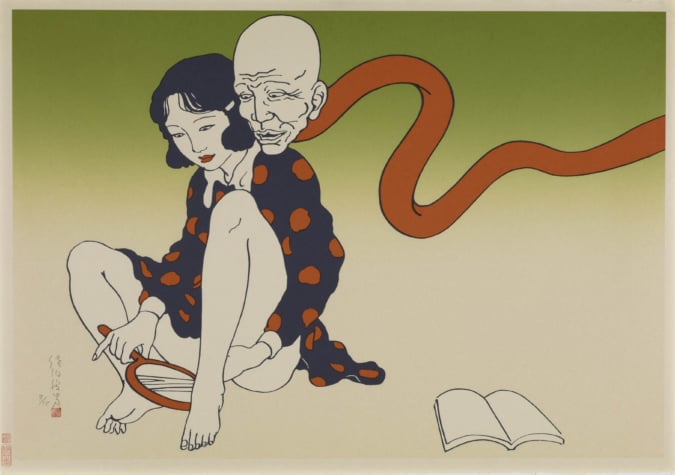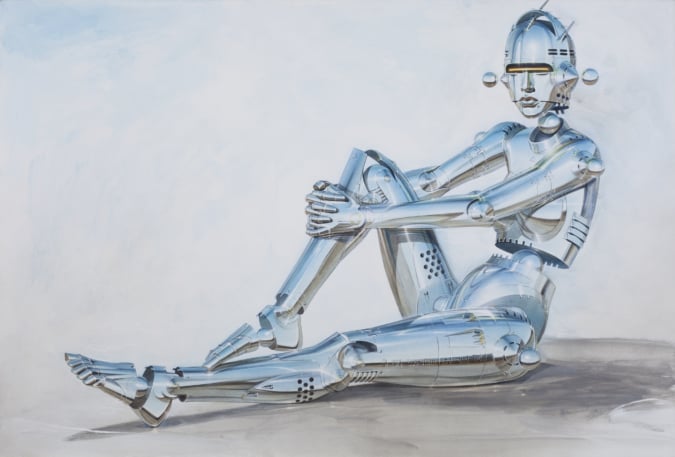Tokyo’s Konbini in Pixel Form
In the series 'Environments', illustrator Nelson Wu recreates Japan's 24-hour supermarkets entirely in pixels.
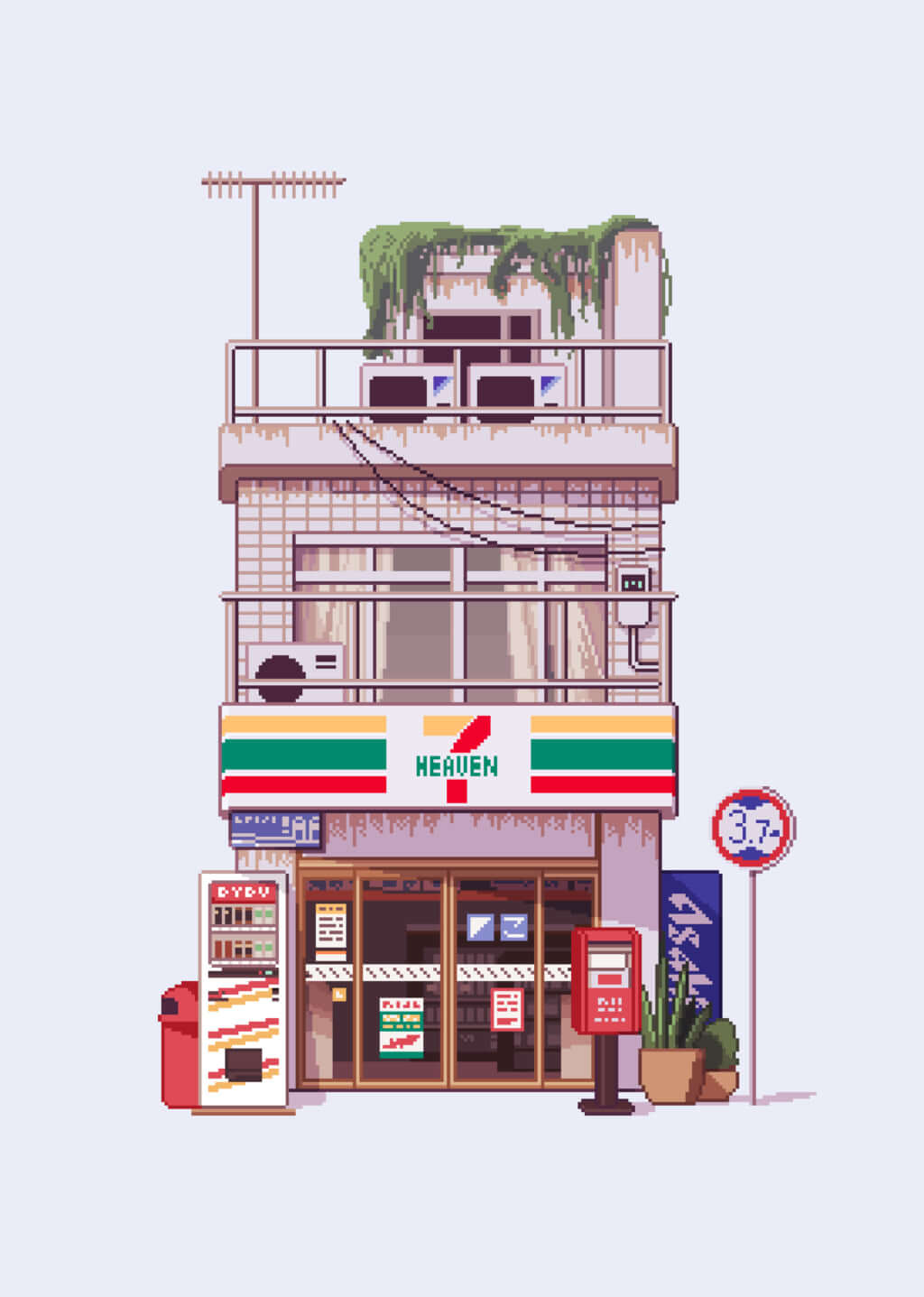
© Nelson Wu
In his pieces, in which a multitude of little coloured squares pile up to form the shape of various Japanese konbini, nothing escapes Nelson Wu‘s eye. The recycling bins just next to the entrance, the visible electric cables that brush against the façade, the leafy clusters that add a touch of nature to the urban hardscape…
Nelson Wu is a Chinese-Canadian pixel artist and graphic designer. He works in the video game industry, creating backdrops, game elements, and animations. He started working in pixel art in 2016 and has noticed a renewal of interest in this creative style over the past few years. ‘I think there’s a certain nostalgic charm to doing pixel art now, since it originates from video games. Over the past two years, pixel art has made a strong comeback thanks to a vast community that has enabled it to be revived and reborn in a modern way’, the artist explains in an interview with Pen.
Assembling puzzle pieces
His first encounter with Japan came in 2019. While wandering the streets of Tokyo, the artist took a strong liking to Japanese architecture, and particularly that of konbini. Thus, he decided to create the series Pixel Art: Environments, in which he draws, in square format, the façades of the different buildings he passes while out walking. ‘Little elements like the alternating current, plants, restaurant signs, pipes, tiled walls, and even the shape of the building create a very satisfying arrangement. Building these structures and translating them into pixel art is like assembling puzzle pieces’, Nelson Wu continues.
The artist, who hopes one day to direct a short film entirely in pixels, has also compiled other Japanese miscellanea in the series Pixel Art: Prop Concepts, in which he reproduces equally iconic Japanese items: vending machines, bowls of ramen, and flagship products found in konbini.
Pixel Art: Environments (2019), a series by Nelson Wu, can be found on the artist’s website.
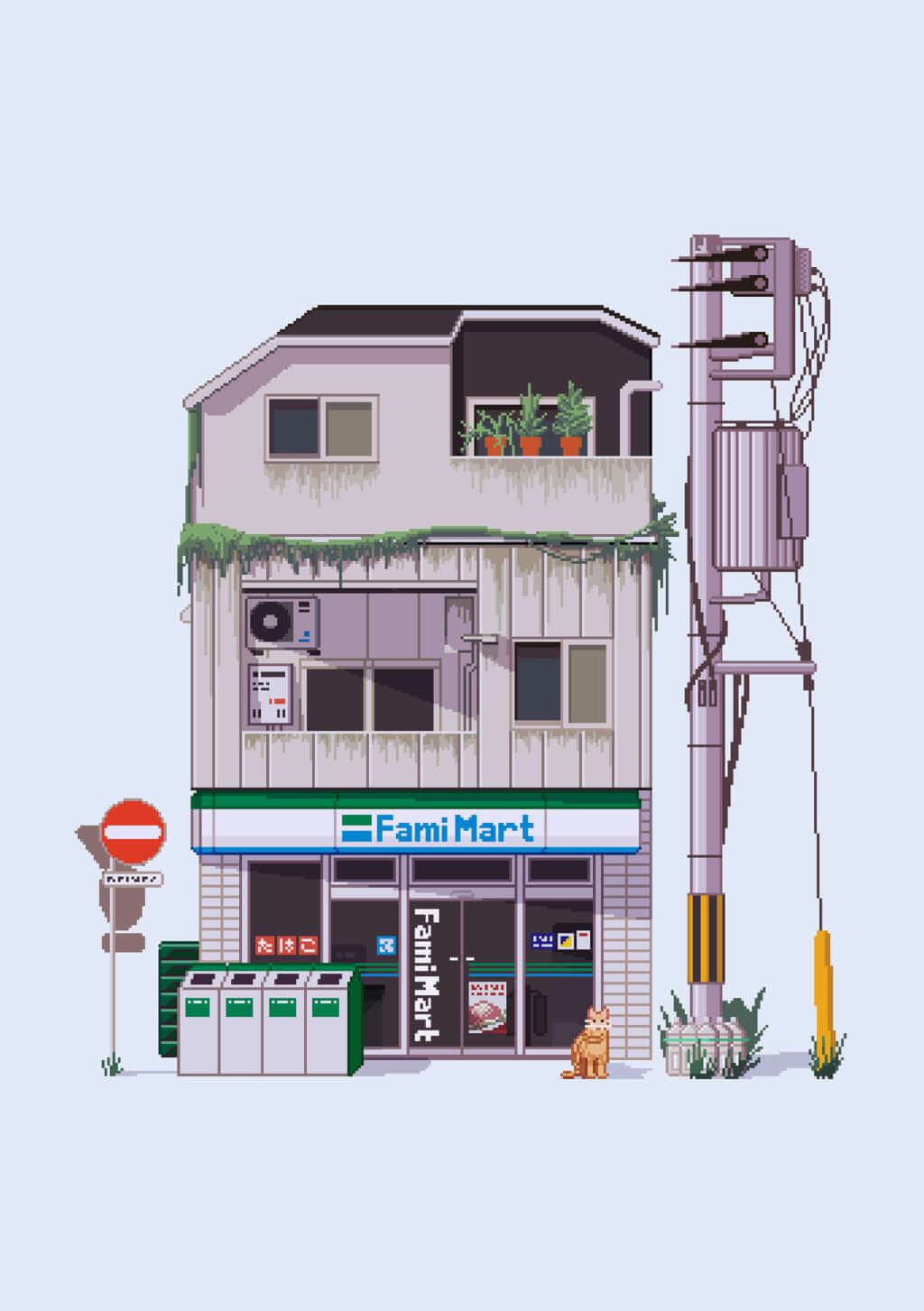
© Nelson Wu
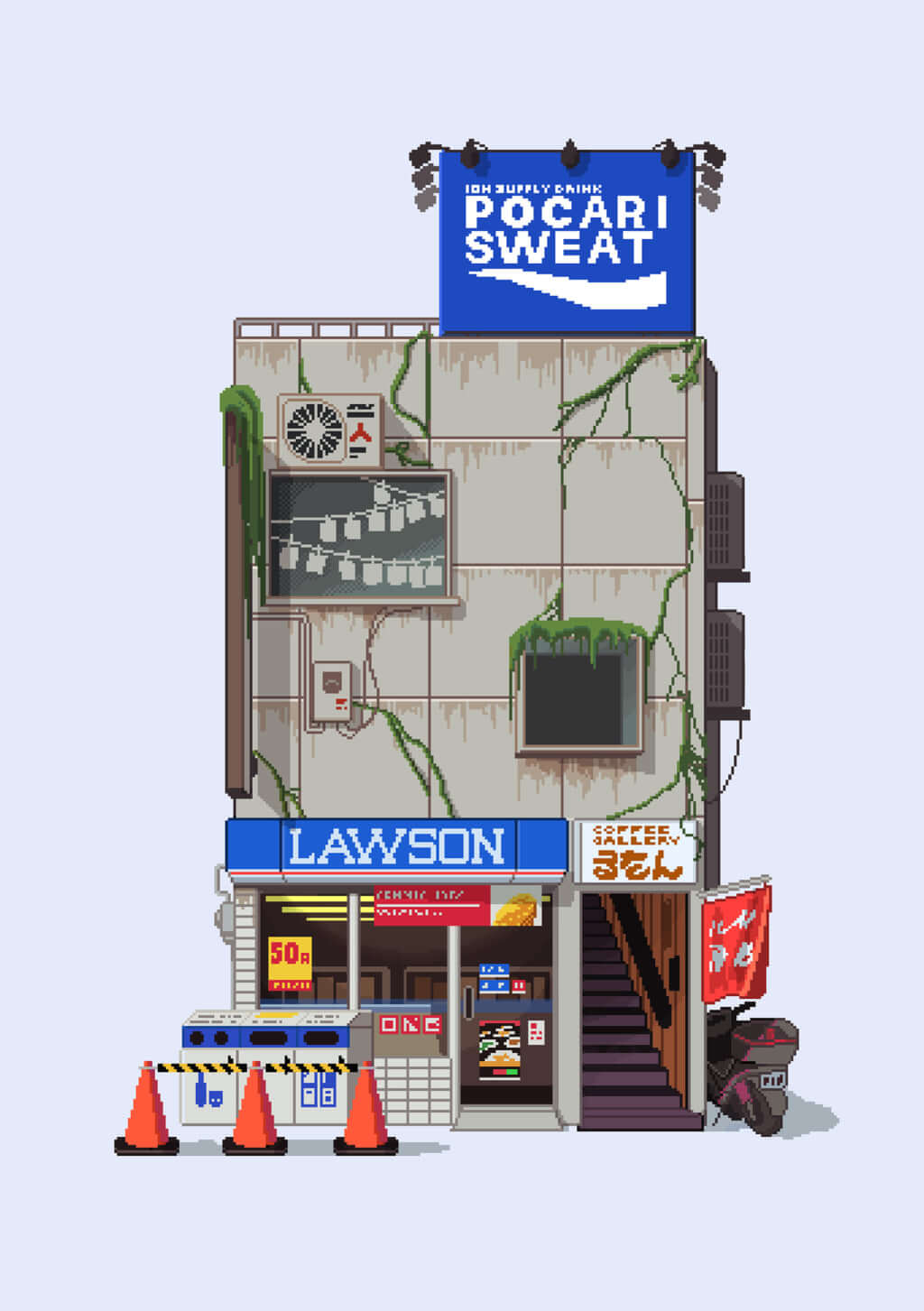
© Nelson Wu
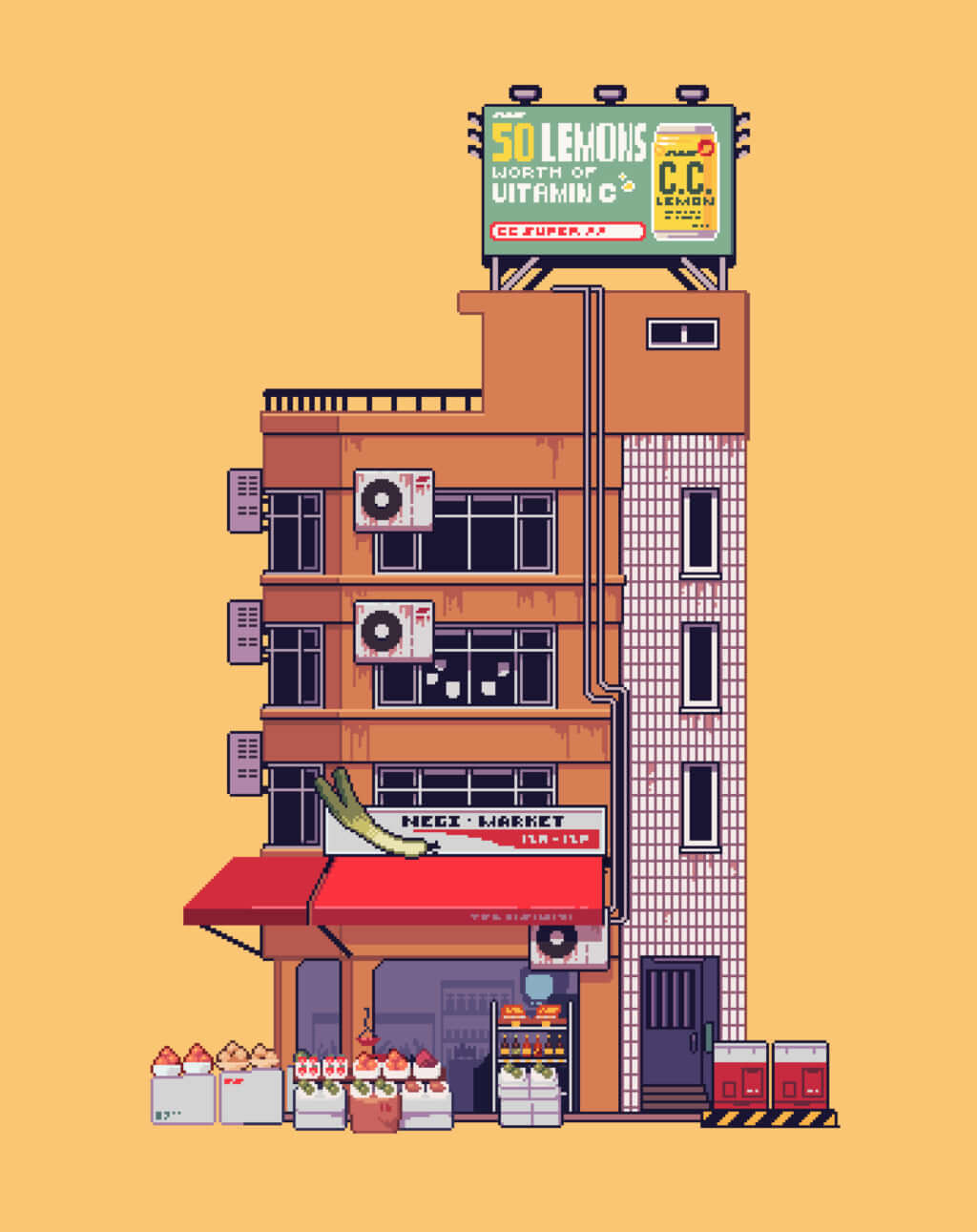
© Nelson Wu
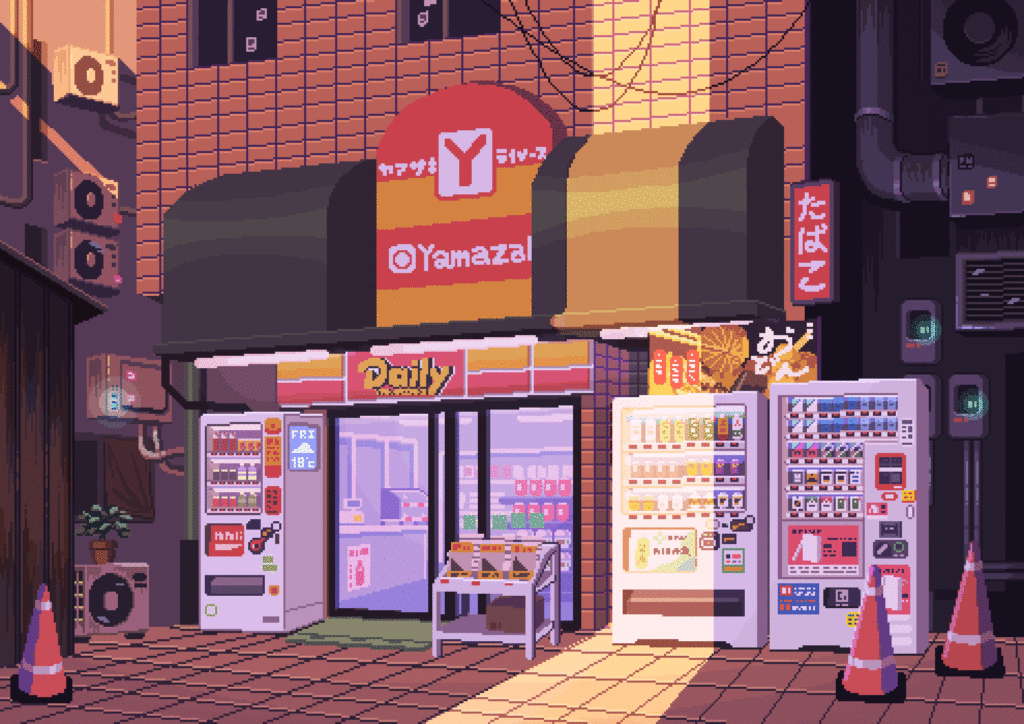
© Nelson Wu
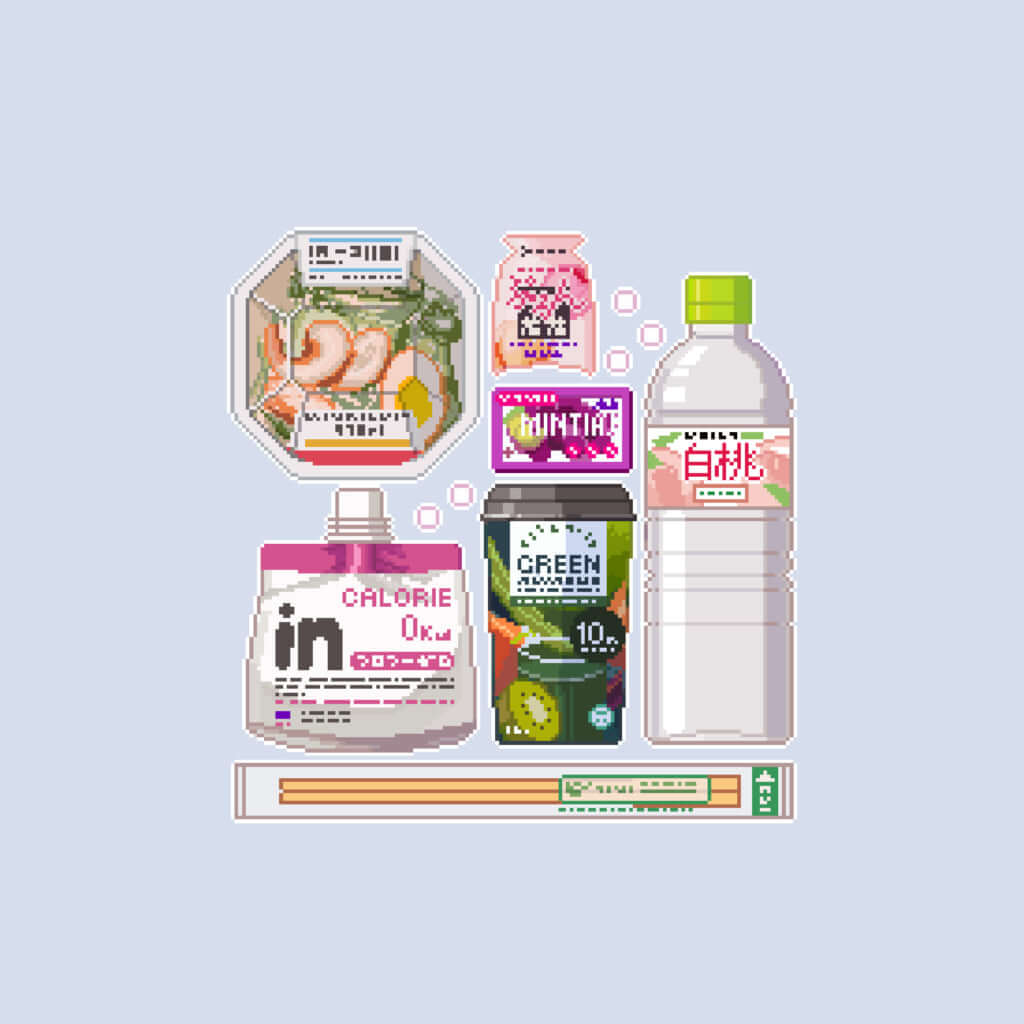
© Nelson Wu
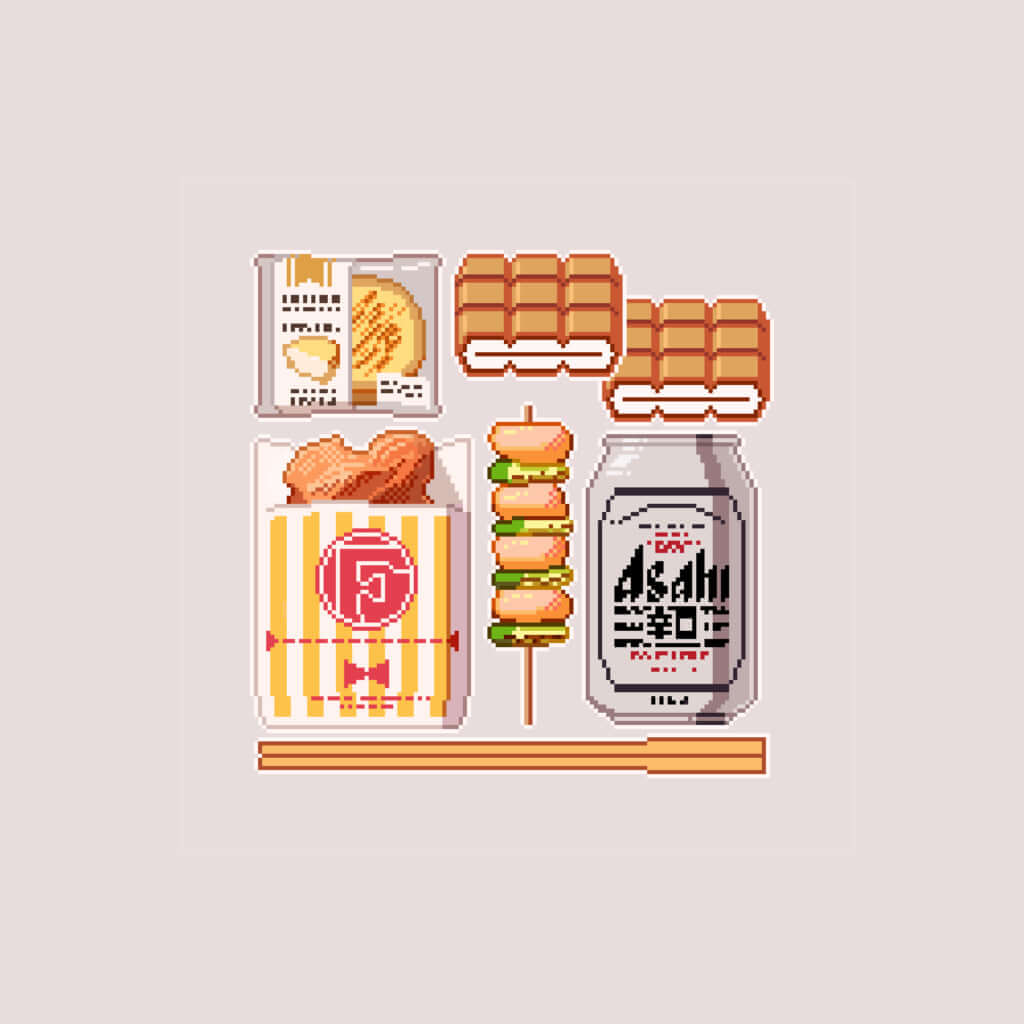
© Nelson Wu
TRENDING
-
A House from the Taisho Era Reveals Its Secrets
While visiting an abandoned building, Hamish Campbell discovered photographs the owner had taken of the place in the 1920s.

-
The Taboo-Breaking Erotica of Toshio Saeki
The master of the 1970s Japanese avant-garde reimagined his most iconic artworks for a limited box set with silkscreen artist Fumie Taniyama.

-
With Meisa Fujishiro, Tokyo's Nudes Stand Tall
In the series 'Sketches of Tokyo', the photographer revisits the genre by bringing it face to face with the capital's architecture.

-
Masahisa Fukase's Family Portraits
In his series ‘Family’, the photographer compiles surprising photos in which he questions death, the inescapable.

-
Hajime Sorayama's Futuristic Eroticism
The illustrator is the pioneer for a form of hyperrealism that combines sensuality and technology and depicts sexualised robots.


